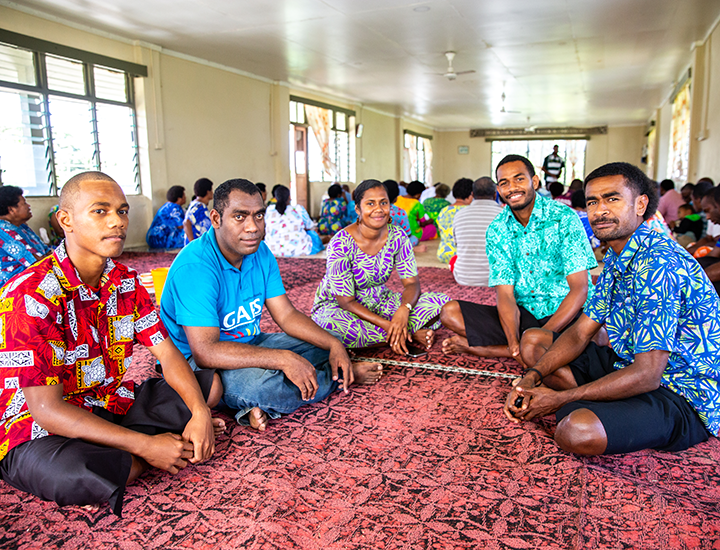Improved disability inclusion in South Sudan
Stories | February 9, 2022
In South Sudan, decades of conflict, poverty and poor access to essential services have increased the rate of disability, and the marginalisation and exclusion of people with disabilities.
CBM worked with partners in Juba, South Sudan’s capital, on a Community Based Inclusive Development (CBID) project to improve the quality of life of people with disabilities.
The project evaluation indicated that 5,300 people directly benefited from the project and were shown to have:
- Increased awareness of disability rights and reducing stigma, leading to an increase in early detection of disabilities in children and referral for services.
- Improved health of people with disabilities through better quality and better access to health and rehabilitation services.
- Improved access to education for children with disabilities, resulting in more children with disabilities in school.
- Improved economic opportunities for people with disabilities and their caregivers.
In South Sudan, people with disabilities are heavily represented among the poorest and unemployed. Ensuring vulnerable people know about and have access to quality health services is key to preventing or reducing the impact of disability. One of the strategies used was radio shows about disability.
A parent whose child benefited from the CBM project said: “The radio awareness has reached very many people with disabilities within and outside the city were some of the people who have access to transport are bringing their children to Usratuna [CBM supported centre for children with disabilities] for treatment.”
The evaluation showed how the CBM project’s awareness activities led to early detection of disability and an increase in referrals for medical and rehabilitation services. The CBM project trained health workers to better understand the needs of people with disabilities. Feedback from the project’s beneficiaries indicated that 85 per cent of responders said they received the care they needed.
The CBM project’s awareness campaign improved community understanding of disability issues and helped individuals realise that people with disabilities have potential, and that they too can learn and contribute to society and the economy. While previously, many children with disabilities missed out on school, now parents are seeing the value in paying for school fees for children with disabilities – setting a precedent for children with disabilities to go to school.
A teacher involved in the project said: ”Before this program parents used not to pay school fees for their children with disabilities, however, this has changed now because one our student passed P8 and is now in Jubek East Secondary School performing better than even those children without disabilities.”
For a child with a disability to thrive at school, the school must be disability inclusive. The CBM project supported inclusive education through accessible facilities and training teachers in disability awareness. This led to more children with disabilities attending school.
A child with a disability told evaluators: “The ramps built at the class entrance is really making it easy to go in the class by myself without anybody pushing the wheelchair and also the new constructed toilets is also friendly and easy to assess.”
CBM acknowledges the support of the Australian Government through the Australian NGO Cooperation Program (ANCP).
Read more about how the CBM project in South Sudan improved access to health services for children like Agua, Mikala and Lino.
https://www.cbm.org.au/stories/improved-disability-inclusion-in-south-sudan
Related Stories

Building a Just and Inclusive Future: Disability-Inclusive Disaster Risk Reduction and Climate Action
People with disabilities are among the hardest hit by...

Week 1 – Lent series 2025
Being held by Jesus…held together by Jesus, invites us to lean into solidarity. As we begin Lent today, we will be reflecting on the theme...

Five things organisations should think about when supporting OPDs in capacity strengthening
Strengthening the capacity of organisations of people with disabilities...
